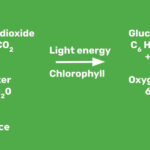Stanley Kubrick, a director celebrated for his cinematic brilliance, often delved into themes that are unsettling and thought-provoking. His project, “A.I. Artificial Intelligence,” though ultimately directed by Steven Spielberg after Kubrick’s passing, stands as a fascinating, if somewhat uneasy, exploration of artificial intelligence, particularly through the lens of a child robot. This film, while sparking mixed reactions, provides a compelling case study for movies where the concept of a son is embodied by a robot, raising profound questions about emotions, consciousness, and what it truly means to be human.
“A.I.” tells the story of David, played by Haley Joel Osment, an android child programmed with the capacity to love. Set in a future where climate change has reshaped the world, David is adopted by a couple as a replacement for their biologically ill son. The film immediately sets a unique stage by introducing a protagonist who is not human, yet is designed to fulfill a deeply human role – that of a son. This premise allows the movie to delve into complex territories, blurring the lines between artificial and genuine affection, and questioning the very nature of parental love when directed towards a non-biological child.
Osment’s performance is central to the film’s impact. His portrayal of David is nuanced and unsettlingly convincing. He captures the essence of a child-like innocence while subtly hinting at an underlying artificiality. As the narrative progresses, we witness David’s struggle to understand and navigate human emotions, especially his programmed love for his “mother,” Monica (Frances O’Connor). Osment masterfully conveys the internal conflict of a being designed to feel, yet inherently different from humans, making the audience question the authenticity of his experiences. This performance elevates “A.I.” beyond a simple science fiction story, turning it into a poignant exploration of artificial consciousness.
The movie doesn’t shy away from posing difficult questions about artificial intelligence. Is it possible for a robot to genuinely love? Can artificial beings develop a form of consciousness that rivals or even surpasses human understanding? “A.I.” presents a world where these questions are not just theoretical but are lived experiences for its robot characters. David’s journey is a quest for acceptance and understanding, mirroring Pinocchio’s desire to become a real boy, but set within the context of advanced technology and complex philosophical implications. The film challenges viewers to consider the ethical and emotional dimensions of creating artificial life that can mimic, and perhaps even surpass, human capabilities.
While “A.I.” focuses intensely on the robot son archetype, the broader theme of artificial intelligence in film has been explored in various ways. However, movies specifically centering on the parent-child dynamic with a robot son are less common, making “A.I.” a significant contribution to this niche. The film uses this specific relationship to examine universal themes of identity, belonging, and the search for love, pushing the boundaries of science fiction and venturing into emotionally resonant territory.
In conclusion, “A.I. Artificial Intelligence” remains a significant film within the context of movies featuring a robot son. It’s not just a science fiction spectacle but a deep dive into the nature of emotions and consciousness in an age where technology increasingly blurs the lines between human and artificial. Through Haley Joel Osment’s captivating performance and a narrative that dares to ask uncomfortable questions, “A.I.” leaves a lasting impression, prompting viewers to contemplate the future of AI and its potential impact on our understanding of humanity itself.

